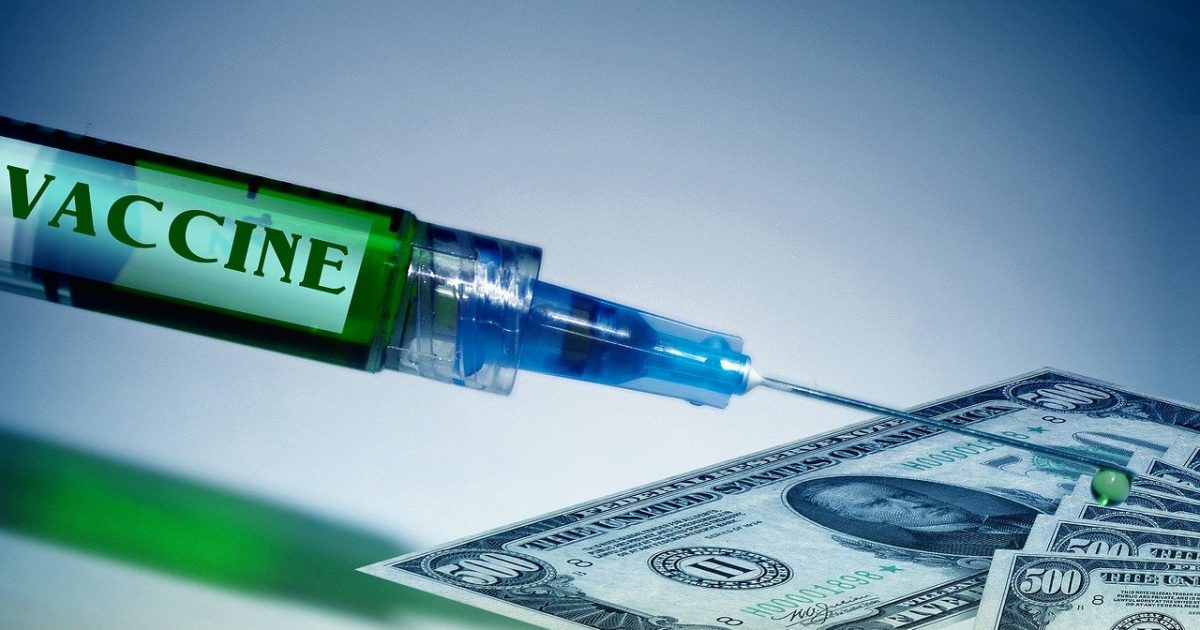How many times do you hear of an 18-year old having a heart attack?
I’d be surprised if anyone has heard of such a case.
But for 18-year old Isaiah Harris, that was the reality after receiving the 2nd dose of the experimental Pfizer COVID-19 jab.
Harris is an active teenager that played football, lifted weights, and had no prior health complications.
In other words, he had no business getting this experimental jab that he has a 99.99% chance of survival.
Like many other young experimental jab recipients, Harris was diagnosed with myocarditis.
Sadly, Harris has gone from his active lifestyle to bed rest and heart medications.
And the maximum amount of physical activity he can exert is walking his dog.
That’s not something any 18-year old should go through.
Yet, the CDC continues its lackadaisical approach with the widespread myocarditis side effect from the experimental COVID-19 vaccines.
It’s downright criminal.
Here’s the latest:
In exclusive The Defender interview, 18-year-old Isaiah Harris + his father described how Isaiah had to be hospitalized within 48 hours of second dose of Pfizer vaccine + subsequently had a heart attack.
SUBSCRIBE to #TheDefender: https://t.co/zL66Edfiw5https://t.co/3UR2mjV5LL
— Robert F. Kennedy Jr (@RobertKennedyJr) June 22, 2021
18 year old Isaiah Harris had a heart attack.
April 8- first dose of Pfizer April 30-second dose
48 hours later, in ER with acute myocarditis.https://t.co/lunUP0bjAS pic.twitter.com/2mjBNIXyCD— Z 🥶 (@Zinnsgh0st) June 23, 2021
Healthy 18-y.o. Isaiah Harris has heart attack following 2nd Pfizer vaccination shot.https://t.co/WF1ownUlDr
— Stacy Phillips🇺🇸🇺🇸 (@1stacyphillips) June 14, 2021
Children’s Health Defense had the report:
An 18-year-old from Springdale, Arkansas, who had a heart attack after receiving his second dose of Pfizer’s COVID vaccine said he’d rather get COVID than have a heart attack.
In an interview with The Defender, Isaiah Harris said he received his first dose of Pfizer on April 8 and second dose on April 30. Within 12 hours of the second dose, the teen developed a fever and chills. His father, Justin Harris, initially didn’t think much about it because he got sick after both doses of the Moderna vaccine, although his symptoms weren’t serious.
That wasn’t the case for Isaiah. Within 48 hours of the second dose, Isaiah’s heart started hurting “very very bad” and things started going downhill fast. Harris said they grew really concerned when their son started having trouble breathing.
“We took him to the hospital but they didn’t take him seriously,” Harris said. “We waited in the waiting room for over two hours and then they left him in a hallway for six hours. Things went from bad to worse while waiting in the hospital. That’s when he had his heart attack and one of his lungs filled up with fluid.”
Harris said it wasn’t until his wife — who was the only one allowed with Isaiah in the hallway due to COVID restrictions — told the staff multiple times her son was having a heart attack that they put him in a room and ran the EKG.
Isaiah’s EKG was abnormal and his numbers kept getting worse. At one point, 80% of Isaiah’s heart was inflamed and only 40% was functioning. Isaiah’s troponin levels were so high doctors said he had suffered a heart attack.
“Doctors kept denying it was the vaccine,” Harris said. “They didn’t want to say it was that. Then a nurse brought in a study showing the vaccine could cause myocarditis.”
Myocarditis is inflammation of the heart muscle that can lead to cardiac arrhythmia and death. According to researchers at the National Organization for Rare Disorders, myocarditis can result from infections, but “more commonly the myocarditis is a result of the body’s immune reaction to the initial heart damage.”
Isaiah was hospitalized for four days for “acute myocarditis,” Harris said. “Doctors were saying six months of total bed rest with medications to numb his heart. That’s when I got a hold of the surgeon general of Arkansas and he gave us the link to VAERS because the hospital didn’t do anything.”
VAERS is the Centers for Disease Control and Prevention’s Vaccine Adverse Reaction Reporting System.
Harris said he is bothered that the CDC is “passing this off” and “isn’t doing thorough research into this.”
Facing long recovery, Isaiah regrets getting the vaccine
Isaiah had a best friend with connections at the Cleveland Clinic who got him an appointment with Dr. Allan Klein, a heart specialist and director of the pericardial center at the Cleveland Clinic.
“The doctor at Cleveland is doing research on myocarditis. He’s seen 100 patients personally with myocarditis from the vaccine, and did early research on this when there were just 77 cases,” Harris said.
Isaiah, who graduated from community college as a senior in high school, said his condition right now is better than it was but he’s still in a little bit of pain.
“The swelling has gone down,” Isaiah said. “I used to lift every day but for three to six months I cannot do any physical activity. The most I can do is walk my dog. If I get my heart rate up, it can reoccur and I could have another heart attack.”
Isaiah said he had no pre-existing conditions prior to suffering a heart attack. “I was fairly healthy. I lift quite a bit. I’m active. I used to play football. No history of viruses or myocarditis.”
When asked if he would recommend the vaccine to other teens, Isaiah said, “I am not anti-vaccine, but I do not think anyone should get this vaccine. Even in Canada I was talking to someone and it was being lowered to one dose for teens and they’re still having issues.”



Join the conversation!
Please share your thoughts about this article below. We value your opinions, and would love to see you add to the discussion!